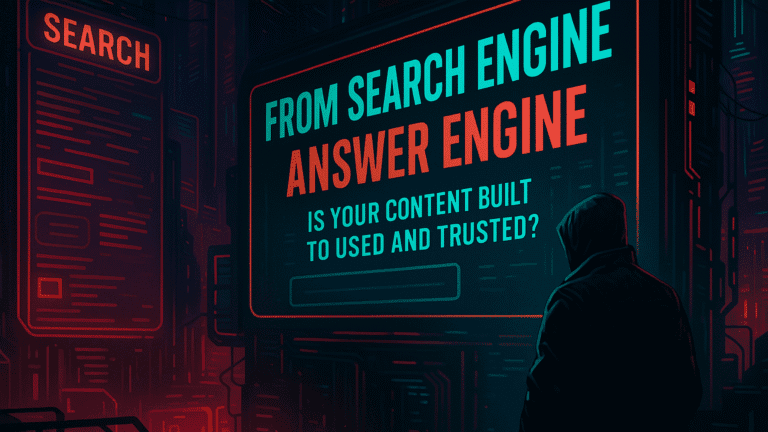TL;DR:
TL;DR: The shift from traditional Google SEO to LLM SEO means businesses must now optimize for AI memory rather than search rankings. Success depends on consistent presence across trusted sources and machine-readable content, not just homepage optimization.
Key Strategies for LLM SEO Success:
- Build consistent brand mentions across multiple trusted websites and third-party sources
- Focus on being cited as a credible source rather than climbing search result rankings
- Structure content with clear headings, schema markup, and labeled entities for AI readability
- Prioritize presence and repetition over individual page authority and technical SEO factors
- Create content that AI systems can easily parse, digest, and reuse in generative answers
- Establish yourself in the foundational datasets that AI models reference for credible information
- Shift from click-through optimization to citation and mention optimization across the web
Intro:
For years, digital visibility meant one thing: show up on Google. Rank high, earn clicks, and hope your meta description was good enough to convert.
But that game is fading fast.
Large Language Models like ChatGPT, Gemini, Claude, and whatever comes next—aren’t surfacing lists of results. They’re generating answers. And they’re doing it based on what they’ve already “learned” from the internet, not what they just crawled a second ago.

This is the quiet rise of LLM SEO—a new approach to visibility that has almost nothing to do with page rank. The goal isn’t to climb a list. It’s to be included in a machine’s internal map of what’s relevant, trustworthy, and worth saying out loud.
Unlike Google, AI models don’t scan and rank live web pages on demand. They’re trained in bulk, absorbing massive datasets and distilling them into patterns. Once deployed, they may pull in live data—but only from sources they’ve already deemed credible. If your brand isn’t part of that pre-existing foundation, you don’t get cited. You get ignored.
According to platforms like SEOwind (1) and StoreSEO (2), the best way to become part of that memory is to show up everywhere the model looks: consistent brand mentions across trusted sites, repeat appearances in third-party coverage, and clear, well-structured content that machines can parse without guessing.
This isn’t a minor adjustment—it’s a rewiring of what SEO even means.
Traditional SEO was all about ranking: getting to the top of the results page, measuring click-through rates, and fine-tuning technical factors like load time and mobile optimization. LLM SEO flips that. It’s about presence—being cited as a trusted source, mentioned in the right context, and presented in a format that AI systems can digest and reuse.
That makes consistency across the web more important than the authority of your homepage. If the model sees you quoted in four different sources, that carries more weight than a single optimized blog post.
And structure matters more than ever. Tools like Dotcominfoway have highlighted how schema markup, clear headings, and labeled entities improve the odds that your content will be recognized and pulled into generative answers. It’s not about keywords anymore. It’s about legibility to machines that are synthesizing—not retrieving.
What we’re seeing is the birth of what some now call Generative Engine Optimization (GEO): content strategy for a world where no one clicks, and no one scrolls. Just a question, a model, and an answer.
That’s the new visibility race. And most companies don’t even know they’re running it.
As Jim Liu wrote in a recent LinkedIn breakdown of LLMO strategy: “In the LLM era, influence isn’t just about being found. It’s about being remembered.”
So the question isn’t, “Are we optimized for search?”
It’s, “Will the machine remember us when it answers?”
1) https://seowind.io/llm-seo/
2) https://storeseo.com/blog/llm-powered-seo-differs-from-traditional-seo/
“The old game was about ranking first on Google. The new game is about being remembered by the AI when someone asks a question. That’s not SEO anymore — that’s digital legacy.”
— Wayne Clayton, The AI Answer Man
Call to Action
Want help training your team or building smart ChatGPT workflows?
👉 Book a Free AI Readiness Call with Importynt AI
We’ll show you how to turn ChatGPT into your team’s secret weapon.





